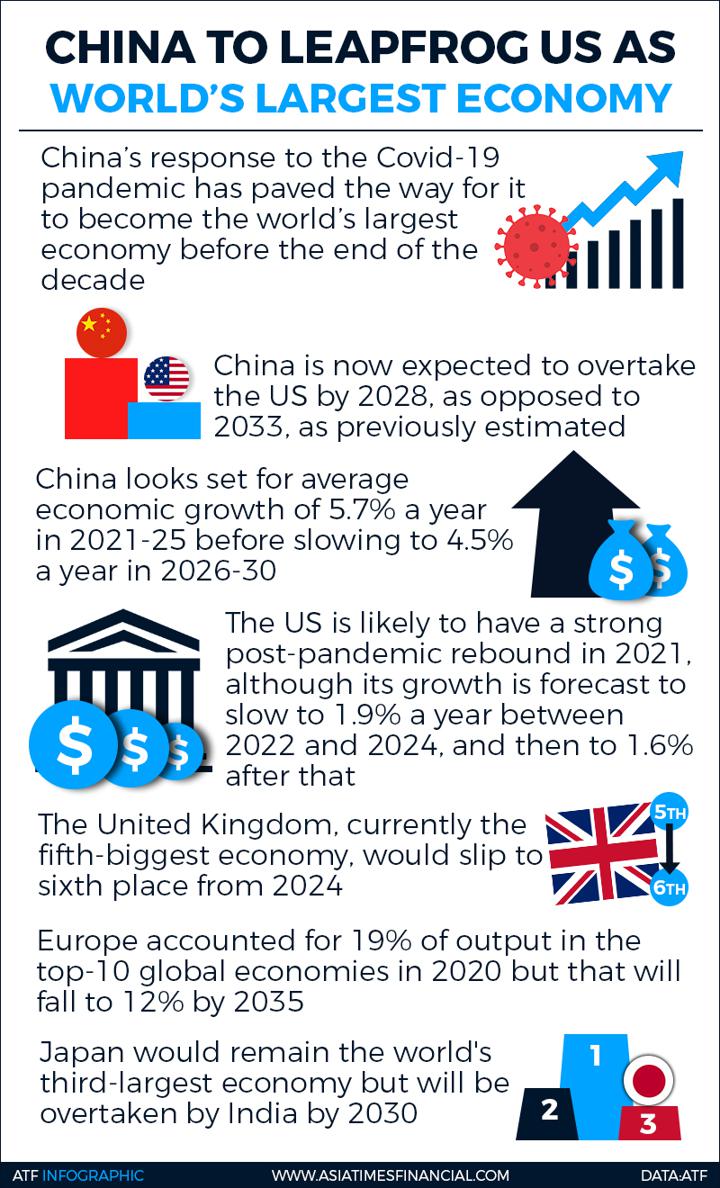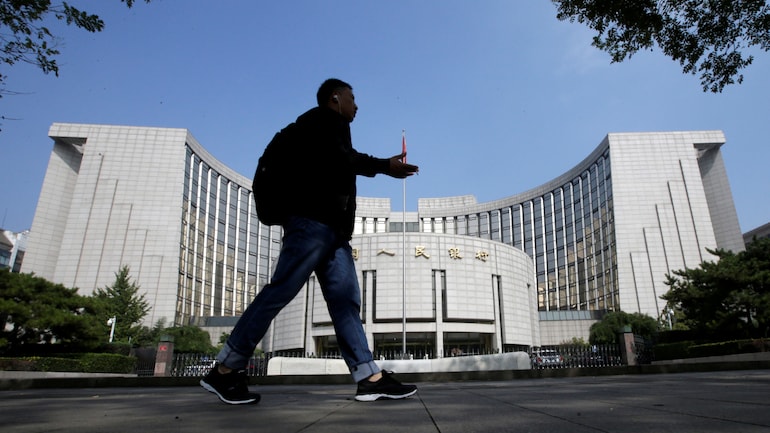(ATF) While China hopes for an improvement in the US-China ties with Joe Biden stepping into the White House next month, its response to the pandemic has paved way for becoming the largest economy before the end of the decade, according to a report by a UK think tank.
Beijing is now expected to overtake the US by 2028, as opposed to 2033, due to the contrasting recoveries of the two countries from the Covid pandemic, the Centre for Economics and Business Research (CBER) said in an annual report published on Saturday.
“For some time, an overarching theme of global economics has been the economic and soft power struggle between the United States and China,” CBER added.
The Donald Trump administration had repeatedly criticised China for not being transparent about the origins and early impact of Covid. In July, President Donald Trump even announced US’s exit from the WHO after accusing the UN organisation of failing to oversee the onset of the coronavirus as it began to spread in China.
But US President-elect Joe Biden has said that he wants to make sure that China plays by the rules and announced that his administration will re-join the WHO.
“The Covid pandemic and corresponding economic fallout have certainly tipped this rivalry in China’s favour,” said the report.
The CEBR said China’s “skillful management of the pandemic”, with its strict early lockdown, and hits to long-term growth in the West meant China’s relative economic performance had improved.
China looked set for average economic growth of 5.7% a year from 2021-25 before slowing to 4.5% a year from 2026-30, CBER said.
While the United States was likely to have a strong post-pandemic rebound in 2021, its growth would slow to 1.9% a year between 2022 and 2024, and then to 1.6% after that.

UK slipping
The United Kingdom, currently the fifth-biggest economy by the CEBR’s measure, would slip to sixth place from 2024, according to the report.
However, despite a hit in 2021 from its exit from the European Union’s single market, British GDP in dollars was forecast to be 23% higher than France’s by 2035, helped by Britain’s lead in the increasingly important digital economy.
Europe accounted for 19% of output in the top 10 global economies in 2020 but that will fall to 12% by 2035, or lower if there is an acrimonious split between the EU and Britain, the CEBR said.
CEBR predicted Germany would be the fifth-largest economy by the early 2030s.
It also said the pandemic’s impact on the global economy was likely to show up in higher inflation, not slower growth.
“We see an economic cycle with rising interest rates in the mid-2020s,” it said, posing a challenge for governments which have borrowed massively to fund their response to the Covid crisis.
“But the underlying trends that have been accelerated by this point to a greener and more tech-based world as we move into the 2030s.”
India to be the 3rd-largest
Elsewhere for Asia, CEBR has equally startling predictions and says Japan would remain the world’s third-largest economy, in dollar terms till the early 2030s, but it will be overtaken by India by 2030.
India was pushed back to being the world’s sixth biggest economy in 2020, but according to the think tank, the country will pick up momentum again to overtake UK to become fifth largest in 2025 and third largest by 2030, CBER stated.
India will overtake Germany in 2027, it added.
India became the world’s fifth-largest economy by nominal GDP in 2019, outpacing France and the UK, as per IMF. The country’s economic growth has been among the highest in the world in the past decade, and reached a GDP of $2.94 trillion in 2019.
But the country’s economy suffered a steep decline during the first quarter, contracting by a record 23.9%. While the end of strict lockdowns is set to provide some relief, India’s GDP is still projected to drop by at least ten percent this fiscal year.
CEBR forecasts that Indian economy will expand by 9% in 2021.
(With reporting by Reuters)
READ MORE: China’s economic recovery continues but Covid risk remains
READ MORE: China circulates new strategy in economic duel with US
























